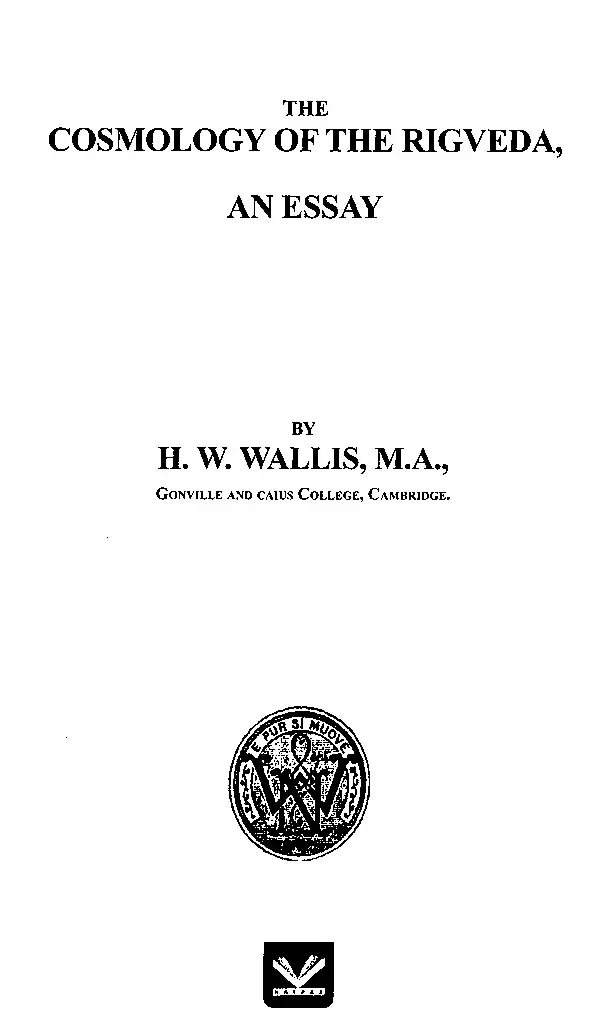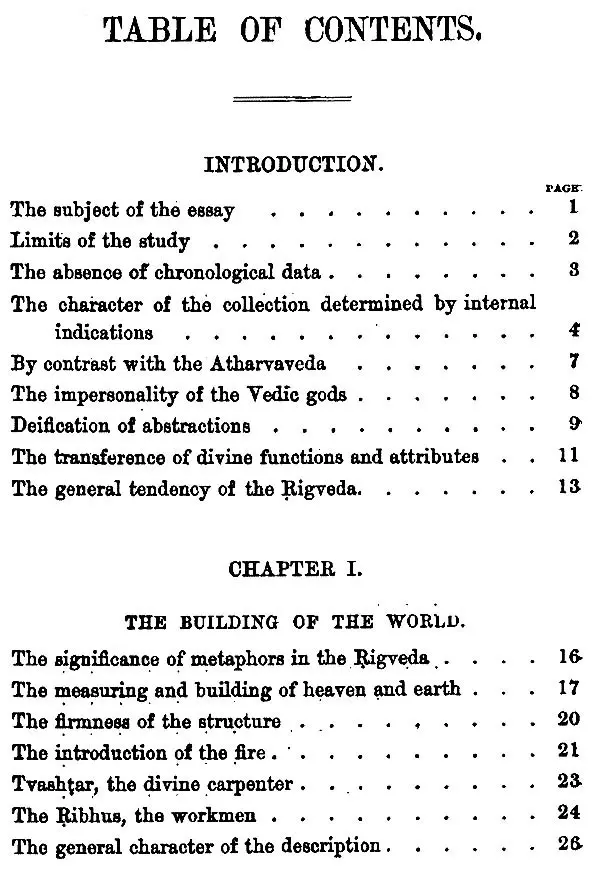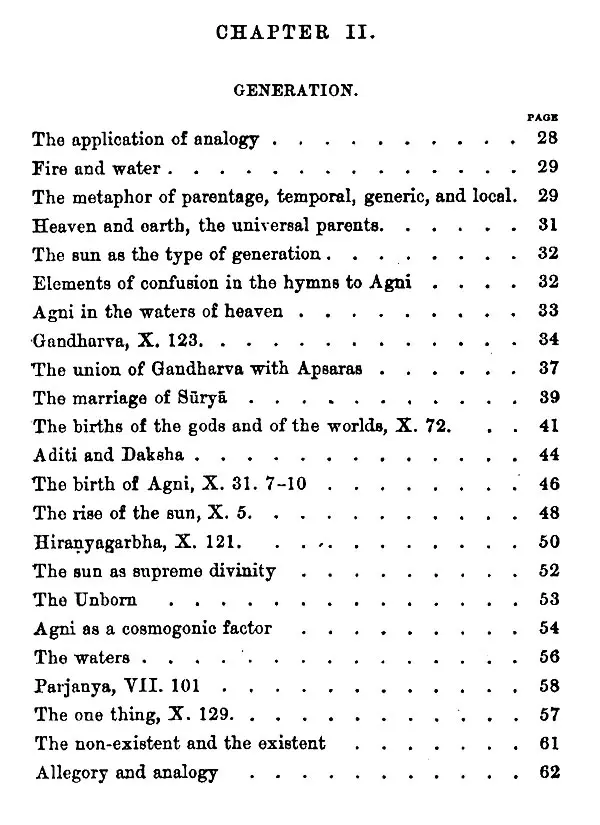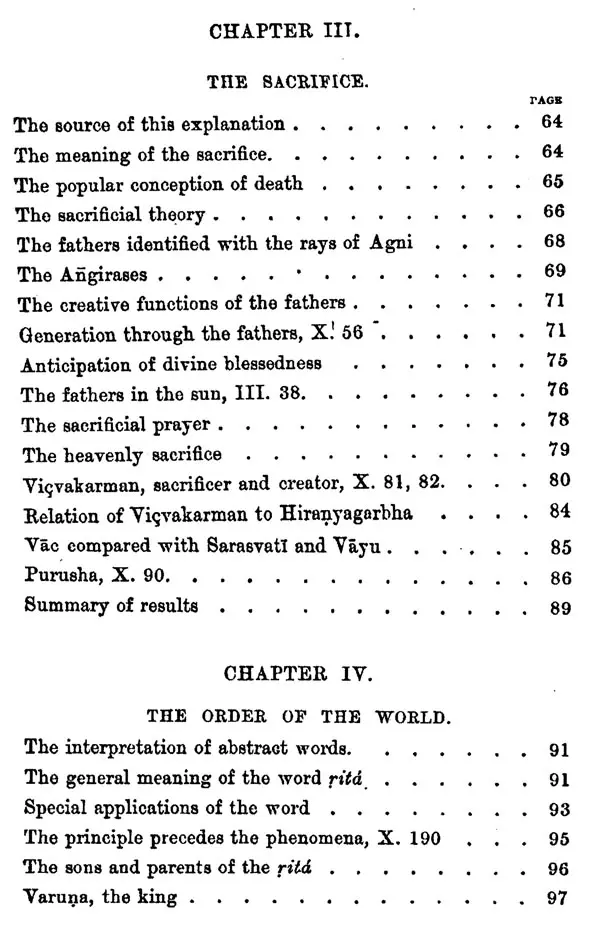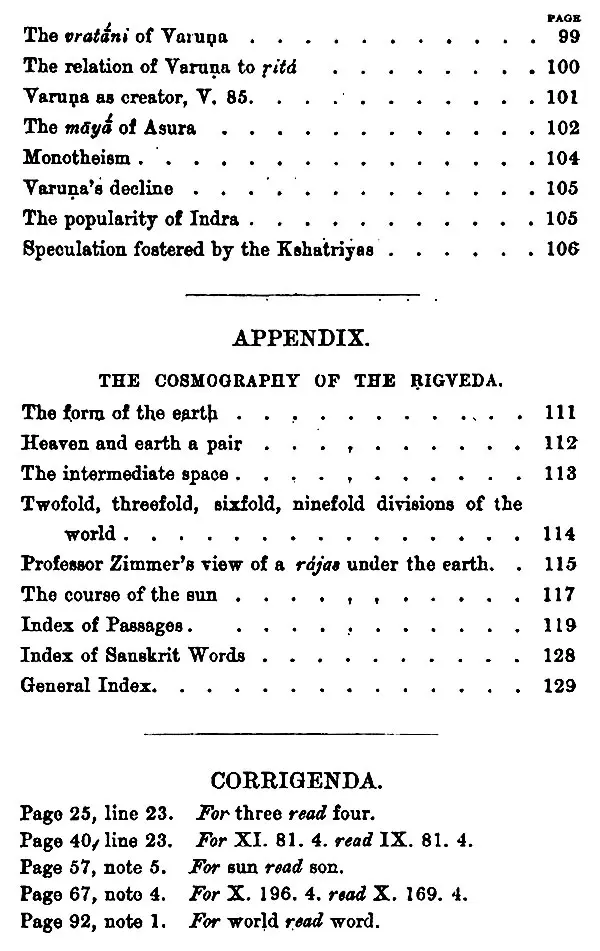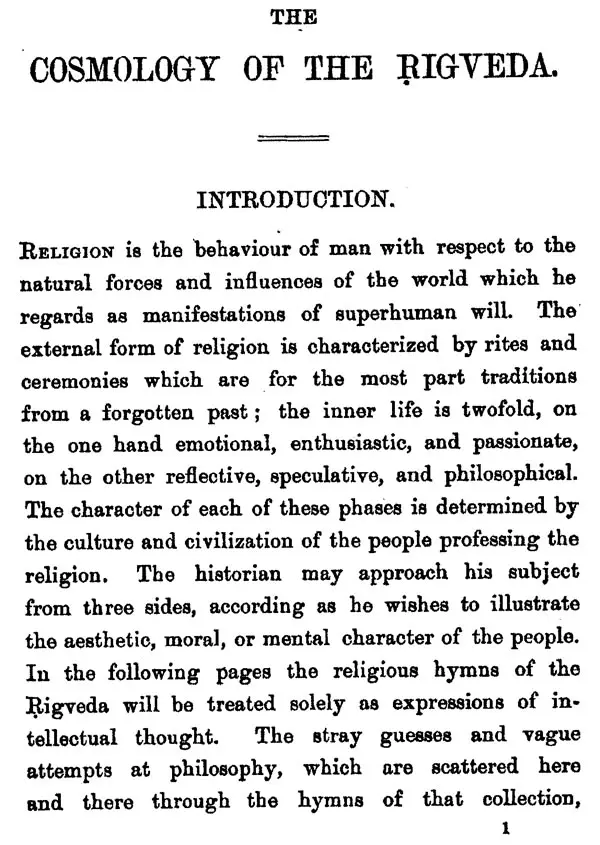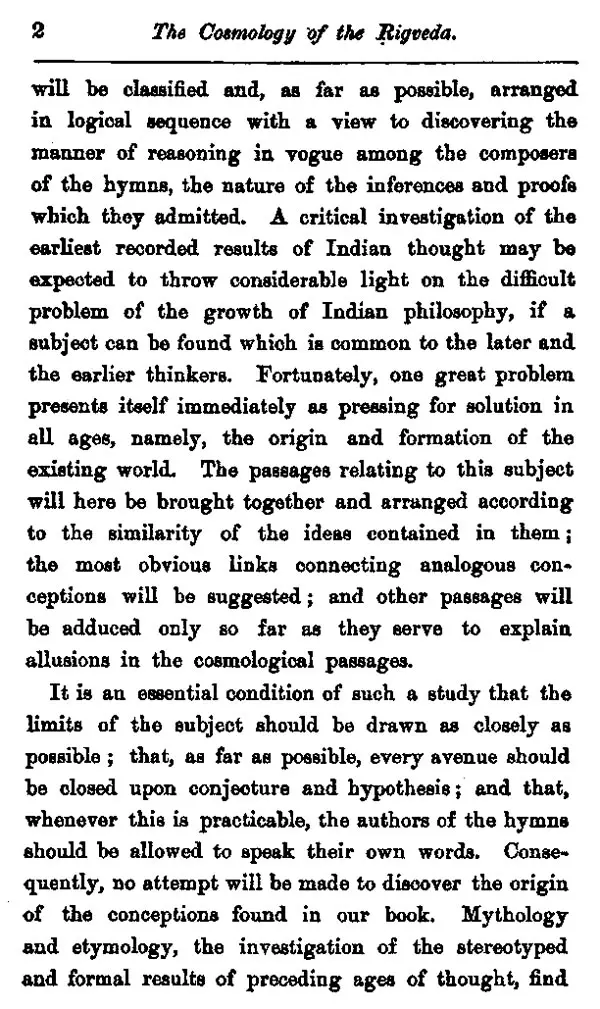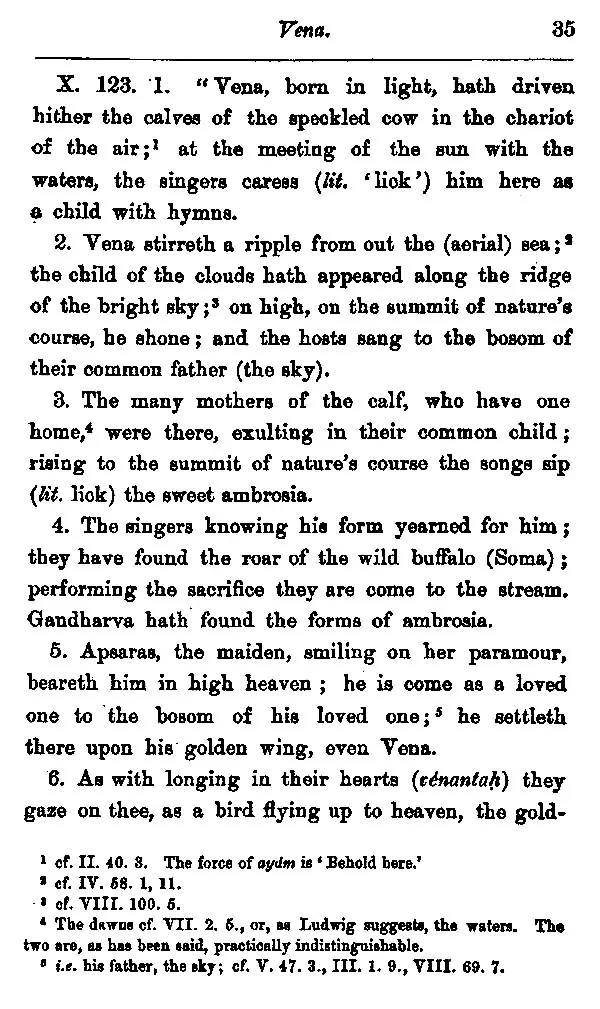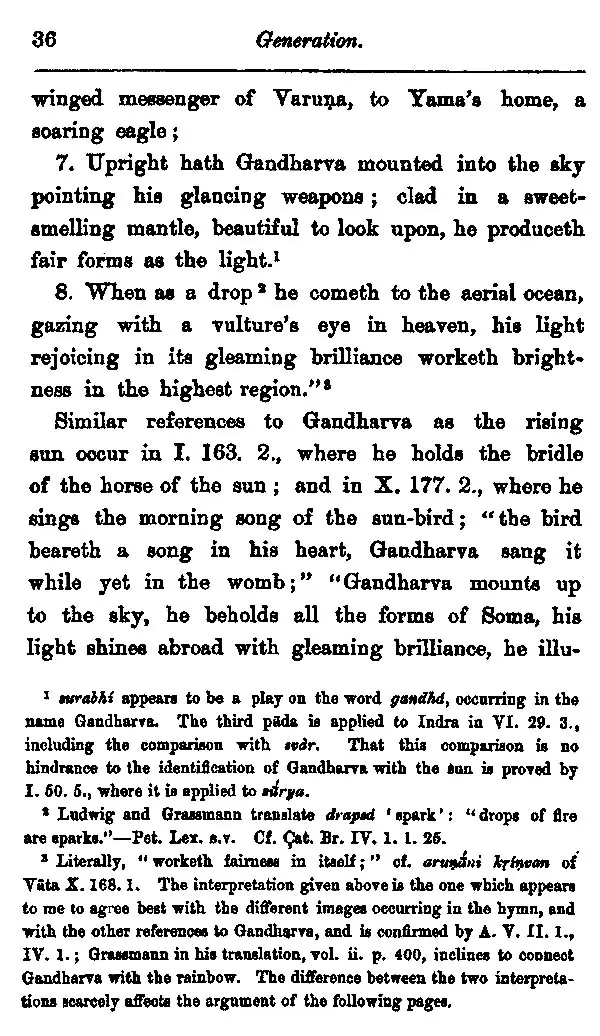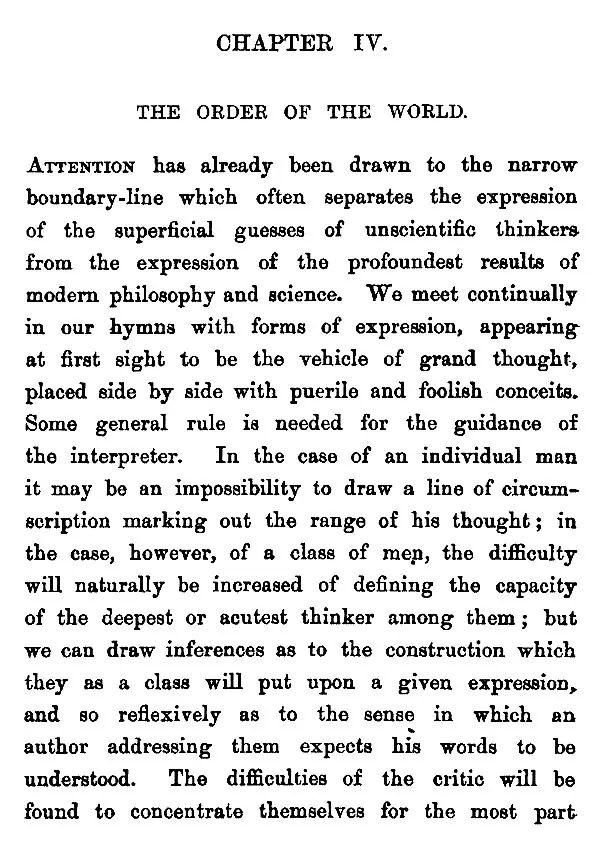
The Cosmology of The Rigveda (An Essay)
Book Specification
| Item Code: | UAM717 |
| Author: | H. W. WALLIS |
| Publisher: | Kalpaz Publications |
| Language: | English |
| Edition: | 2017 |
| ISBN: | 9789351287971 |
| Pages: | 138 |
| Cover: | HARDCOVER |
| Other Details | 9.00 X 6.00 inch |
| Weight | 350 gm |
Book Description
Religion is the behavior of man with respect to the natural forces and influences of the world which he regards as manifestation of super human will. The external form of religion is characterized by rites and ceremonies which are for the most part traditions from a forgotten past, the inner life is two-fold, on the one hand emotional enthusiastic and passionate, on the other reflective, speculative and philosophical. The contents and form of the great majority of the hymns in the Rigveda bear distinctly the marks of a complex of doctrine in process of elaboration. The Atharvaveda however, presents us with another picture. In it we find a collection of charms and incantations for the practical uses of common life.
H.W. Wallis was a social scientist of late Nineteenth Century. He has completed his Graduation and Master degree and worked in Gonville and Caius College, Cambridge. The writer here to express his sincere gratitude to those teachers who have assisted him in his general Sanskrit studies, Professor E.B. Cowell, R.V. Roth, G. Buhler, F. Kielhorn and K. Geldner, some of whom have also kindly suggested correction while it was passing through the press.
THE object of this essay is not so much to present a complete picture of the Cosmology of the Rigveda, as to supply the material from which such a picture may be drawn. The writer has endeavoured to leave no strictly cosmological passage without a reference, and to add references to illustrative passages where they appeared to indicate the direction in which an explanation may be sought. In order to avoid any encumbrance of the notes by superfluous matter, references which are easily accessible in other books, such as Grassmann's Lexicon, are omitted, and those references which are intended to substantiate statements which are not likely to be the subject of doubt, are reduced to the smallest number possible. The isolation of the Rigveda is justifled on linguistio grounds. On the other hand, the argument which is drawn from the Atharvaveda in the Introduction is based on the fact, attested by the internal character of that collection and by tradition, that the Atharvaveda lies apart from the stream of Brahmanio development: on the testimony of residents in India to the superstitious character of modern Hindoos: and on the striking similarity of the charms of the Atharvaveda to those of European nations. If, as seems most probable, the cosmological passages and. hymns of the Rigveda are to be classified with the latest compositions in the collection, the conceptions with which the essay deals must be regarded as belonging to the latest period represented in the Rigveda, when the earlier hymns were still on the lips of priests whose language did not differ materially in construc tion from that contained in the hymns which they recited.
The writer desires here to express his sincere gratitude to those teachers who have assisted him in his general Sanskrit studies, Professors E. B. Cowell, R. v. Roth, G. Bühler, F. Kielhorn, and K. Geldner, some of whom have also kindly suggested corrections in this essay while it was passing through the press. Above all, his thanks are due to that Trust which, in the first place, rendered it possiblo for him to devote himself to the study, and now has undertaken the publication of this book.
RELIGION is the behaviour of man with respect to the natural forces and influences of the world which he regards as manifestations of superhuman will. The external form of religion is characterized by rites and ceremonies which are for the most part traditions from a forgotten past; the inner life is twofold, on the one hand emotional, enthusiastic, and passionate, on the other reflective, speculative, and philosophical. The character of each of these phases is determined by the culture and civilization of the people professing the religion. The historian may approach his subject from three sides, according as he wishes to illustrate the aesthetic, moral, or mental character of the people. In the following pages the religious hymns of the Rigveda will be treated solely as expressions of in tellectual thought. The stray guesses and vague attempts at philosophy, which are scattered here and there through the hymns of that collection, will be classified and, as far as possible, arranged in logical sequence with a view to discovering the manner of reasoning in vogue among the composers of the hymns, the nature of the inferences and proofs which they admitted. A critical investigation of the earliest recorded results of Indian thought may be expected to throw considerable light on the difficult problem of the growth of Indian philosophy, if a subject can be found which is common to the later and the earlier thinkers. Fortunately, one great problem presents itself immediately as pressing for solution in all ages, namely, the origin and formation of the existing world. The passages relating to this subject will here be brought together and arranged according to the similarity of the ideas contained in them; the most obvious links connecting analogous con ceptions will be suggested; and other passages will be adduced only so far as they serve to explain allusions in the cosmological passages.
Book's Contents and Sample Pages